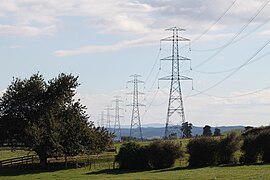Natural monopoly

A natural monopoly is a type of monopoly in which a subject is the only seller and producer of a good or service. It is impossible for a new firm to enter the market as there are very high barriers to entry and very high startup costs, similar to that of a normal monopoly. The natural monopoly term is usually used to describe markets with very high fixed costs compared to the marginal costs of selling the good or service, creating economies of scale that are large compared to the size of the market and hence resulting in very high barriers to entry.[1] Examples of natural monopolies include public utilities such as water services and electricity.
A natural monopoly often keeps getting economies of scale as more of a good or service is produced.
References
[change | change source]- ↑ Perloff, J, 2012. Microeconomics, Pearson Education, England, p. 394.
Related pages
[change | change source]| Different Market forms |
|---|
| Perfect competition • Monopolistic competition • Oligopoly • Oligopsony • Monopoly • Natural monopoly • Monopsony |
